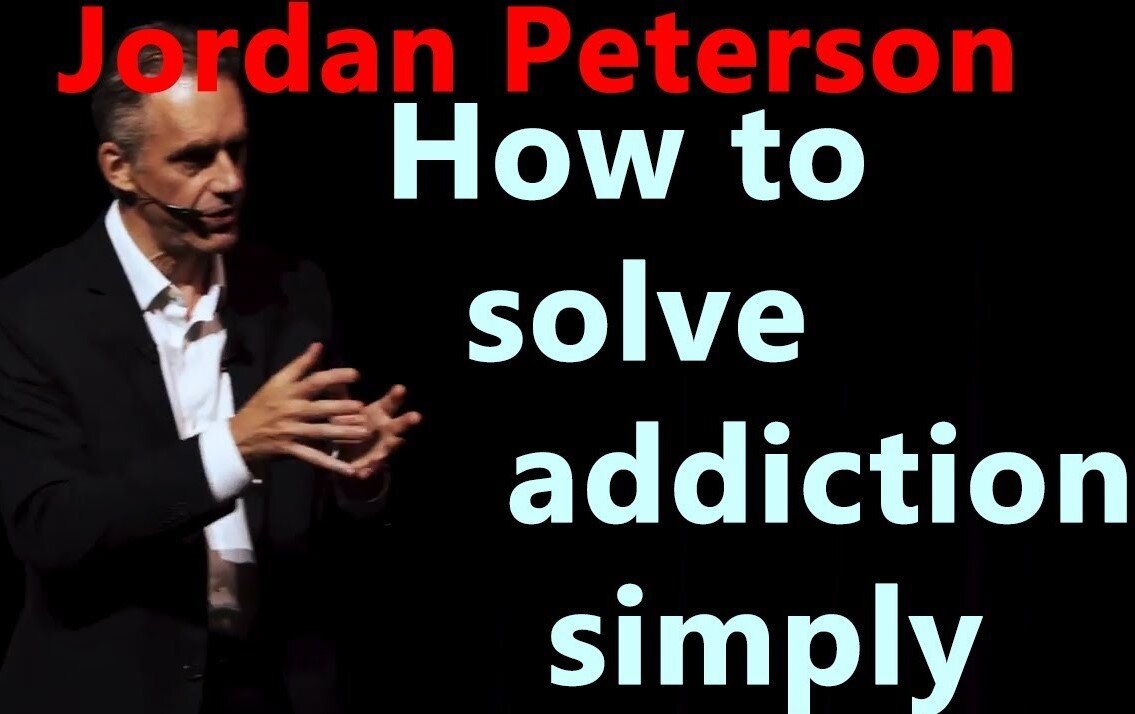
Oftentimes, when we seek to recover from an addiction or bad habit, we get tunnel vision. We focus all our energy on not engaging in that activity, whether that’s porn, sex, food, drugs, or scrolling on our smart phones. It’s not rocket science, just stop doing it, right? As it turns, a more holistic approach to healing can be a much more effective strategy. A holistic approach treats the whole of people, taking into account the complex, interconnected systems at work both within people and outside of them. If I break my arm, I may elevate it, apply heat or cold therapy, put it in a cast, and rub on some kind of analgesic. However, if I don’t rest my entire body, get enough sleep, and eat well, the healing process will be impaired. And so it is with every problem area in our lives.
Today, I’ve transcribed a short clip in which professor, clinical psychologist, and public intellectual, Jordan Peterson, addresses the topic of addiction. Peterson argues that in order to recover from addiction, we need to replace the addictive habit with something else. Dr. Leigh refers to this process as “habit replacement” (healing the brain from pornography addiction). Recovery, for Peterson, is all about making holistic changes and viewing the addiction through the lens of other more important life goals and aspirations.
In sum, when we seek to remove a toxic habit or addiction from our lives, we must replace it with something else, because the vacuum that gets created will eventually get filled, either with the same habit, or with some other equally pernicious one.
When the unclean spirit has gone out of a person, it passes through waterless places seeking rest, and finding none it says, ‘I will return to my house from which I came.’ And when it comes, it finds the house swept and put in order. Then it goes and brings seven other spirits more evil than itself, and they enter and dwell there. And the last state of that person is worse than the first.
Luke 11:24-26
For more, see the archive of articles on integrity.
Transcript:
Questioner: So you’ve been an educator through the rise of the Smartphone, and my question basically relates to procrastination and task delay. Needless task delay, specifically. And, given the unprecedented level of distraction that we have in today’s world, I just wanted to get your perspective from a psychological standpoint. Other than “cleaning your damn room!†what would you suggest to a student who’s looking to overcome these things.
Peterson: Well, I think with any, let’s call it, addictive process. I mean E-Mail is powerfully addictive, right? It’s a slot machine, and I mean that technically. That’s a variable ratio reinforcement schedule, if I remember correctly. And it’s very addictive, because if you pull on the slot machine enough, you will win, and you never know which pull will reward you. So not only is that addictive, but it’s very hard to extinguish that, and so E-Mail is like that because there’s always something beckoning, and now and then it’s a jackpot.
And social media is like that because, you know, people are posting interesting things, and so, well, how do you overcome an addictive process? You do it by replacing it with something better.
When people study drug and alcohol use, they often make an elementary mistake, which is to try to figure out why people use drugs and alcohol. That’s not a smart thing to wonder. We know why people use cocaine. Cocaine directly stimulates the systems that produce positive emotion. So there’s no mystery there. The mystery with cocaine is very, very simple. Why don’t people take cocaine all the time until they die? That’s the mystery, really. Because you can get isolated rats to do that. And, for some people, alcohol has the same kind of effect because its mediated by opiates.
Often, what people have to do to get themselves out of an addictive process is to find something better to do to replace it. And so I would say the problem with the gadgets–I mean, they’re amazing things–is that they interfere. They proximally interfere with medium to long-term goals, I would say. And so I think the first thing you have to do to bring them under control is figure out what it is their use is interfering with. It has to be something important.
So you think, “I want to do something important.†What is that? It can be personal. Maybe you want to have a relationship. You want to get married. You want to have kids. You want to have a career that’s meaningful. You want to have a life. You want to have an Abrahamic adventure and be the “father of nationsâ€, let’s say. Well, you can’t be ratting away on your cellphone and doing that.
And so, I think, I think part of it is to set your sights high, and make a plan, and figure out who you could be, and see if obsessive utilization of Smartphone fits into that vision of nobility. And it will partly because they’re unbelievably powerful communication devices, but so often it’s for lack of something better to do, and it also interferes, so that’s about the best I can do with that.

